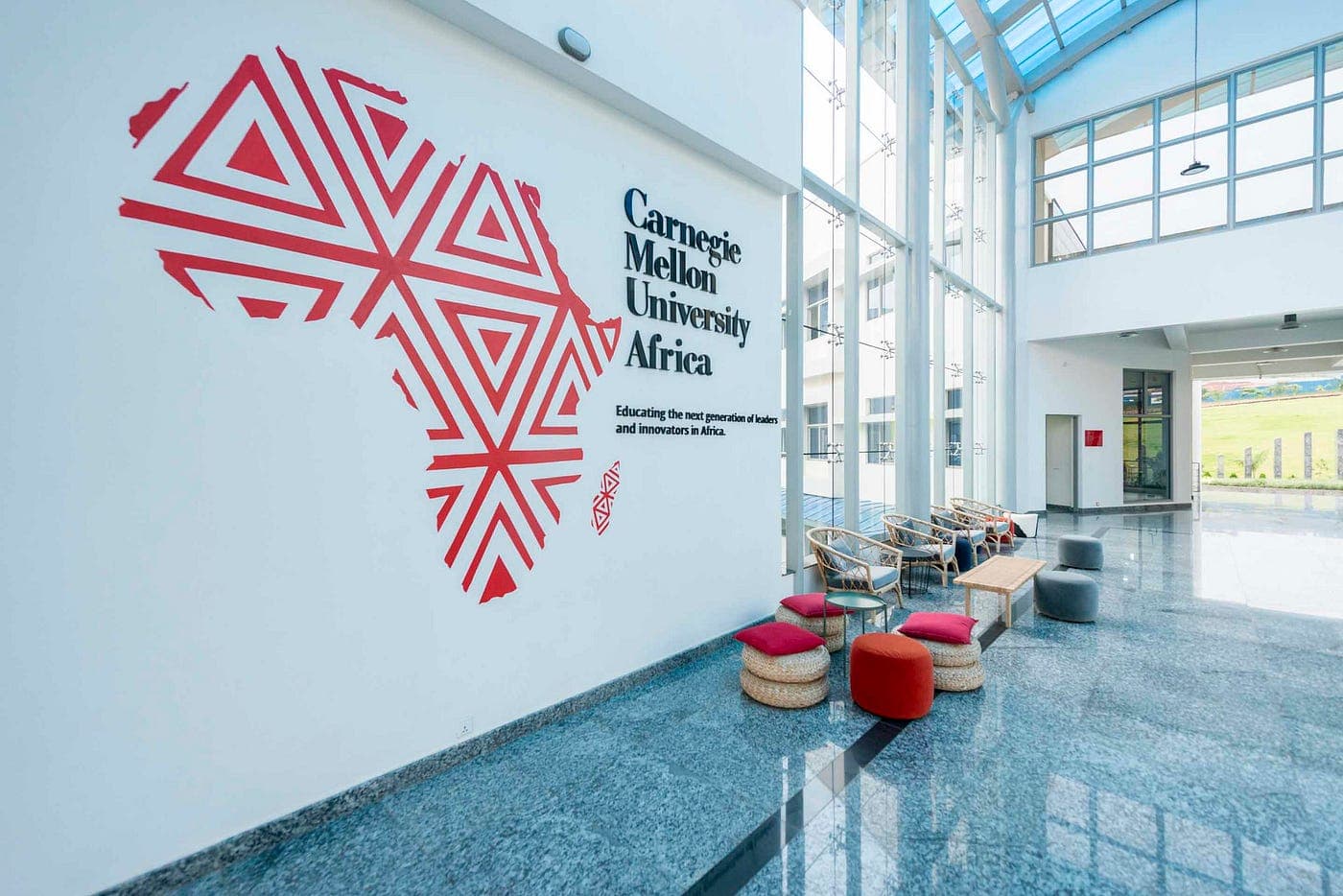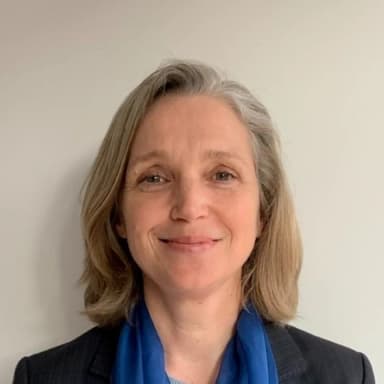Digital Humanism
Summer School
Carnegie Mellon University Africa, Kigali, Rwanda.
Join leading experts in informatics, social sciences, and humanities to collaborate on pressing issues of digital politics, economy, and technology
To find the campus click here to see it on google maps
Location: CMU- Africa Main Campus, F205 & F203



About Digital Humanism
Digital Humanism is an interdisciplinary field that explores the intricate relationship between technology and humanity, with the goal of fostering a society where technological advancements serve to enhance human rights, democracy and inclusion. It recognizes the need for an interdisciplinary approach, integrating perspectives from humanities, social sciences, engineering and technology. The aim of this Summer School on Digital Humanism in Africa is to provide a platform to delve into key issues related to the development and governance of technology within the African context. The program will address critical themes such as digital participation, democracy, sovereignty in the digital age, the impact of platforms on the economy, privacy concerns, ethical AI and the creation of fair systems.
Globally recognized experts from fields such as computer science, social sciences, law and humanities will lead discussions and interactive sessions. These will examine how Digital Humanism can help shape technology policy and innovation in Africa to promote diversity, inclusion and ethical governance. The summer school is an in person event designed in an interactive and interdisciplinary manner, it is open for participants from the different disciplines mentioned (humanities, social, technical and engineering sciences). It is open to students at the PhD and master level as well as interested and qualified persons from industry, institutions and civil society.
Building on the success of prior global Digital Humanism initiatives, this Africa-focused edition will provide a unique opportunity to engage with the challenges and opportunities that digital transformation presents to the continent. Participants will gain hands-on experience, engage in policy dialogue and contribute to the growing global conversation on how technology can be aligned with human values.
A typical course is broad enough to provide a general introduction to the chosen topic, whilst also students can learn the most relevant contributions in depth. In addition, there is enough room for discussions and presentations of participants' projects.
Organizers



Supporters





Learning Objectives
By the end of this seminar, participants will be able to
Identification of Key Challenges
Identify key challenges and opportunities that digital transformation presents within Africa, understanding both the potential and the risks involved.
Essential Issues Relation
Discuss essential issues relation, including digital participation, ethical AI practices and the creation of equitable systems tailored to an African context.
Development Strategies
Analyze and develop strategies to shape technology policy and foster innovation in Africa, with a focus on promoting diversity, inclusion and ethical governance.
Program Schedule
Morning Lectures
09:00 - 12:00Each morning, participants attend two lectures that lay the foundation for the day's theme.
Afternoon Lectures
13:30 - 16:30These lectures deepen the exploration of the daily theme, leading directly into hands-on project sessions.
Hands-on Project Work
16:30 - 18:00Participants work in groups to apply the day's concepts, focusing on practical Digital Humanism projects tailored to African needs.
Event Calendar
To download all schedule file click here
Location: CMU- Africa Main Campus, F205 & F203
Monday 14TH
Introduction : Foundations of Digital Humanism, Introduction to AI, aligning technology with human values and understanding digital transformation in Africa.
Morning
09:00
T1: Welcome & Introduction to Digital Humanism
with Tim Brown, Joao, William, George Metakides, Hannes Werthner
10:30
Introduction to Responsible AI
with Ricardo Baeza-Yates
Afternoon
13:30
T1: Africa declaration on AI
with Shikoh Gitau
15:00
T2: Intro to the use cases and project group formation
Evening
16:30
Project group work: Defining group topics and initial project planning.
with Lanzenberger Monika, Accordino Franco
Organizing Team
CMU
Carine Mukamakuza
Timothy Brown
DIGHUM
Hannes Werthner
George Metakides
Other Members
Thomas McManus
Nancy Biwott
Hans Akkermans
Jeff Kramer
Julia Neidhardt
Bernhard Ostheimer
Instructional Team
The Instructional Team is responsible for the overarching organization of the seminar and ensuring that presentations, activities, and materials support the student achievement of the seminar learning objectives. They will also act as moderators and/or present sessions during the seminar.

George Metakides
George has led R&D policy and funding roles in European institutions, focusing on digitization’s impact, regulatory issues, and global cooperation. Co-founded the Digital Enlightenment Forum and advises international organizations.
Digital Humanism Initiative
Hannes Werthner
He co-founded the Digital Humanism Initiative and is a retired E-Commerce professor at TU Wien. His research includes E-Commerce, E-Tourism, Recommender Systems, and Network Analysis, while fostering new initiatives.
Digital Humanism Initiative

Tim Brown
Tim ’s research seeks to understand so-called challenged networks. Starting from traditional cellular mobile telephone networks we "challenge" this paradigm along several dimensions that allows us to better understand their behavior.
CMU-Africa Rwanda

Ricardo Baeza-Yates
Ricardo Baeza-Yates is a professor of the practice and the director of research at Northeastern University's Institute for Experiential Artificial Intelligence, based in Silicon Valley.
AI Institute, Barcelona Supercomputing Center
Julia Neidhardt
Julia is an assistant professor at TU wien her research is in recommender systems and AI, and how to use machine learning / LLMs in recommender systems
Digital Humanism Initiative

Carine Mukamakuza
Carine is a lecturer, researcher, and entrepreneur. Her research focuses on digital healthcare solutions, business intelligence, data science (specifically machine learning, where she has centered her attention on recommender systems), online social network behavior, and personalization.
CMU-Africa Rwanda
Jeff Kramer
Jeff Kramer is Emeritus Professor of Distributed Computing at Imperial College London. Interested in value based requirements engineering for responsible systems development.
Imperial College London UK

Prof. Hans Akkermans
His current research interests focus on the interdisciplinary research, education and community service program W4RA (Web alliance for Regreening in Africa).
Vrije Universiteit Amsterdam Netherlands/UDS, Ghana

Nancy Biwott
Nancy Biwott is a seasoned diversity and inclusion professional with a passion for social justice. She has worked in various organizations in roles touching on conflict transformation, inclusion, and sustainable business. She has facilitated numerous trainings on the same in the various Kenyan Counties and across various African countries.
CMU-Africa Rwanda

William Mutero
William Mutero is the director of the Center for Inclusive Digital Transformation of Africa (CIDTA), bringing 15 years of impactful experience across consulting, medical, pharmaceutical, international civil society, and non-governmental organizations. With a versatile IT, operations, and leadership background, William is dedicated to fostering high-performing teams and driving Africa's transformation.
CMU-Africa Rwanda

Thomas Elmar Kolb
Thomas is a doctoral researcher at TU Wien with a background in computer science. His research focuses on bias and fairness in recommender systems and generative AI.
TU Wien Informatics
Experts Team
Each member of the Expert Team offers knowledge and perspective in a specific area of interest during the Summer School. They will be involved in presentations, discussions, and/or project advising in their area of expertise during the seminar.

Thomas McManus
Thomas has taught at both graduate and undergraduate levels at several higher education institutions across the globe. As the founding director of three different teaching and learning centers, he has worked with professionals from diverse fields, ranging from humanities and social sciences to STEM and healthcare.
CMU-Africa Rwanda

Abebe Geletu
His current research focus includes systems optimization for sustainable resources utilization in Africa, multidisciplinary research and development for addressing engineering problems, AI and Data-driven approaches for complex problems.
AIMS Rwanda

Monika Lanzenberger
Monika Lanzenberger leads IT Solutions at the European Commission’s DG ECHO, managing global ICT systems for humanitarian aid. With a PhD in Computer Science, she specializes in cybersecurity, semantic technologies, and knowledge engineering, and has published extensively. Her career bridges EU policy, research, and advanced information systems development and delivery.
European Commission

Franco Accordino
Franco Accordino leads the Knowledge Management and Innovative Systems unit at the European Commission’s DG CONNECT, driving digital innovation and strategic foresight. With expertise in emerging technologies, policy development, and complex systems, he brings decades of experience in harnessing cutting-edge IT to support innovation, governance, and transformative public service delivery.
European Commission

Francis Saa-Dittoh
Francis Saa-Dittoh MSc is a lecturer in Computer Science and a researcher in ICT for Development (ICT4D) at the University for Development Studies UDS, Tamale, Ghana. He obtained a Master Degree in Internet and Web Technologies at the Vrije Universiteit Amsterdam. He is a Principal Investigator in many ICT projects in close collaboration with rural local communities, especially in the semi-arid drylands in the north of Ghana. He is currently finalizing his PhD Thesis entitled: From Radio to AI --- African Community-driven Development of Sustainable Information Systems.
University for Development Studies, Ghana
Ngoqo Bukelwa
Bukelwa Ngoqo currently works at the School of IT, Nelson Mandela University. Bukelwa does research in Information Systems (Business Informatics) and Computer Security and Reliability. Their current project is 'eGovernment information security behaviour profiling:Exploring the association between employee awareness, behavioural intent and cognitive biases.
Nelson Mandela University

Assane Gueye
Assane Gueye is a CMU-Africa professor and Next Einstein Forum Fellow whose research bridges secure communication systems and ICT for development. With a Ph.D. from UC Berkeley, he brings global expertise from roles in the U.S., Switzerland, and Senegal, advancing tech innovation across continents.
Co-director of CyLab and Co-director of the Upanzi Network

Adele Botha
Adele Botha is a Chief Researcher at CSIR, Professor Extraordinaire at UNISA and Stellenbosch, and an NRF-rated expert in mobile technologies and health information systems. With 60+ publications, she leads national interoperability initiatives, mentors PhD students, and serves on international advisory boards and editorial panels.
Council for Scientific and Industrial Research

George Metakides
Refer to The Instructional Team
Digital Humanism Initiative
Hannes Werthner
Refer to The Instructional Team
Digital Humanism Initiative
Jeff Kramer
Refer to The Instructional Team
Imperial College London

Prof. Hans Akkermans
Refer to The Instructional Team
Vrije Universiteit Amsterdam Netherlands/UDS, Ghana
Application Process
Join our Digital Maadili Summer Program through a simple three-step process designed to identify committed candidates who will benefit from and contribute to the program.

Registration Fee
Registration Fee: $400, we offer scholarships and tuition fee waivers.

Application Deadline
Apply for Digital Maadili Summer Program with a simple form.
Deadline for Applications: 9th of May 2025

Selection Process
In our selection process where we identify candidates who demonstrate interest in Digital Humanism and commitment to applying these principles in African contexts.
Due to the high volume of submissions, the notification date has been extended to 26th of May 2025